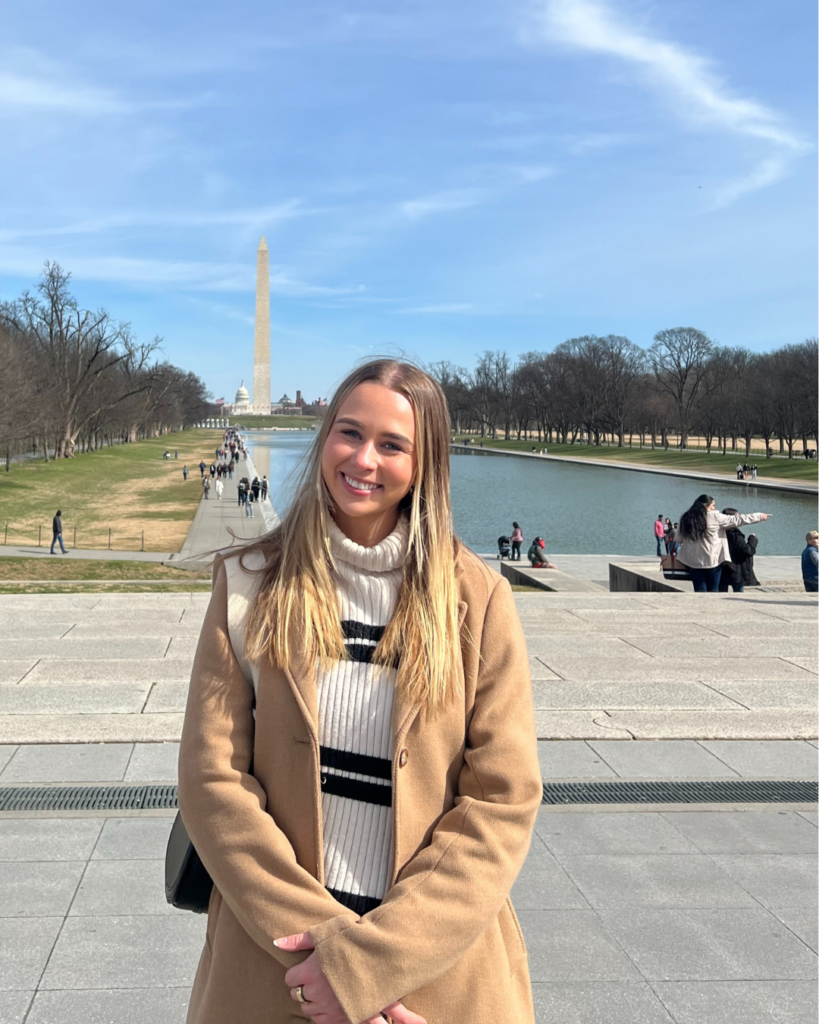Every February, advocates and organizations from the rare diseases community meet in Washington, D.C., for Rare Disease Week. EveryLife Foundation hosts the conference that prepares attendees to meet with lawmakers and advocate for policies that impact rare diseases. This year’s Rare Disease Week resulted in 332 meetings with members of Congress and was attended by 207 patient organizations and more than 700 rare disease advocates. Among those advocates was Vanderbilt Master of Genetic Counseling student Joan Kornkven.
 An autumn self-assessment of her competencies as part of Leadership Education for Neurodevelopmental Disorders (LEND) led Kornkven to the realization that she wanted to increase her understanding of how federal and state policies impacted patients and families. “Additionally, I wanted to learn more about how to advocate for my patients in the public policy area,” Kornkven said. “I also have a passion for rare diseases, as many of the patients we see in the genetic clinic are affected by rare diseases. My graduate thesis is focused on highlighting the impacts of an ultra-rare genetic condition, Schinzel-Giedion Syndrome.”
An autumn self-assessment of her competencies as part of Leadership Education for Neurodevelopmental Disorders (LEND) led Kornkven to the realization that she wanted to increase her understanding of how federal and state policies impacted patients and families. “Additionally, I wanted to learn more about how to advocate for my patients in the public policy area,” Kornkven said. “I also have a passion for rare diseases, as many of the patients we see in the genetic clinic are affected by rare diseases. My graduate thesis is focused on highlighting the impacts of an ultra-rare genetic condition, Schinzel-Giedion Syndrome.”
Kornkven’s LEND supervisor, Mackenzie Mosera, CGC, alerted her to the opportunity to attend the Rare Disease Week conference, and the possibility of being awarded a travel stipend to do so. Kornkven applied for and was awarded a grant from EveryLife Foundation to attend, learn and advocate: “I was thankful that there was a travel stipend, as covering the cost for traveling is difficult as a full time graduate student.”
Once she got to Washington, Kornkven attended meetings with three other Tennessee advocates, all of whom were personally affected by a rare disease. Together they learned about policy and legislation, how they affect individuals with rare diseases, and how citizens can advocate for change. Kornkven had the opportunity to meet with the staff of Sens. Marsha Blackburn and Bill Hagerty, and Reps. Andrew Ogles and Mark Green.
During their meetings with lawmakers, advocates had the opportunity to give a 1-2 minute presentation around the issues discussed at the conference, or on a rare disease-related topic of their choosing. Kornkven’s presentation was directly tied to her studies and future career in genetic counseling: “I chose to ask my representatives to cosponsor the Access to Genetic Counselor Services Act because it was an opportunity to advocate for my profession in a manner that could also significantly benefit the rare disease community.”

“Over the course of my training, I’ve heard from numerous patients who have shared their struggles in accessing genetic counseling services whether due to long wait times or insurance difficulties,” said Kornkven. “These stories highlighted the barriers individuals face when seeking genetic expertise that could positively impact their care. By asking representatives to cosponsor this bill, I was hoping to amplify the voices of those affected by rare diseases and to advocate for policy changes that could improve access to genetic counseling services.”
Kornkven, who will graduate with her MGC in May, plans on beginning her career in direct patient care as a pediatric genetic counselor. “In this specialty I’ll see patients with rare diseases every day,” she says. However, she does not expect that her time at Rare Disease Week will be her only encounter with advocacy and government.

“Over 70% of rare diseases are genetic,” said Kornkven, “And more than half of people with a rare disease are children. This was another reason I was so excited to have the opportunity to learn more about advocacy and policy for individuals with rare diseases, as it’s something that will impact my future patients.”
Kornkven hopes to stay connected to advocacy and public policy as a volunteer: “I know genetic counselors who serve on the public policy committee for the state’s Genetic Counseling Association,” something Kornkven hopes to do after graduation.
“Overall, this was an amazing experience,” said Kornkven. “I learned so much about how policy impacts individuals with rare diseases, and how we can use our voices to advocate for policies that positively impact this communty.”